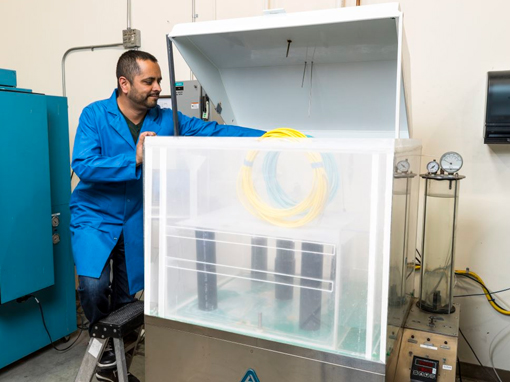Salt Spray Testing
The worst effects of salt occur near coasts. Other areas are do not have high salt content but are nonetheless still exposed. Because of such differing salt content, there are different objectives for different salt spray testing. Some standards may call for a corrosion or pitting visual inspection. While other standards test the ability of the product to prevent clogging or buildup.
Salt spray testing laboratories will have a chamber that will not affect the corrosive of the salt atmosphere. The chambers will have appropriate nozzles and venting. Common salt solutions consist of distilled water and sodium chloride will be used. Experior Labs has the visual inspection testing and measurement tools to check for physical damage or corrosion.
It is nearly impossible to avoid exposure to salt. It is found in the atmosphere, ground, lakes, and rivers. The highest content of salt is near the ocean and sea. Product manufacturers intending to use their component or devices in any of these areas should have a salt spray testing requirement. Indeed, many military testing qualification or requirements specification have salt testing.


Examples of Salt Spray Standards Performed at Experior Laboratory
A military specification that includes salt spray testing is MIL-DTL-83526 which is a fiber optic testing specification. When exposed to salt, the product should not corrode or show penetration. The product should also conform to insertion loss testing requirements. Salt spray testing can also be done in conjunction with other tests to determine reliability. ASTM D5894 for example exposes products to salt fog per ASTM B117 for one week.
Experior has the capability to conduct salt spray testing to many different devices and components used in the military, telecom or industrials fields applying test methods defined in ASTM B 117, MIL-STD-202 method 101, TIA-364-26, SAE J2334, ATPD-2404B, ISO 9227 as well as other standard industry methods.
